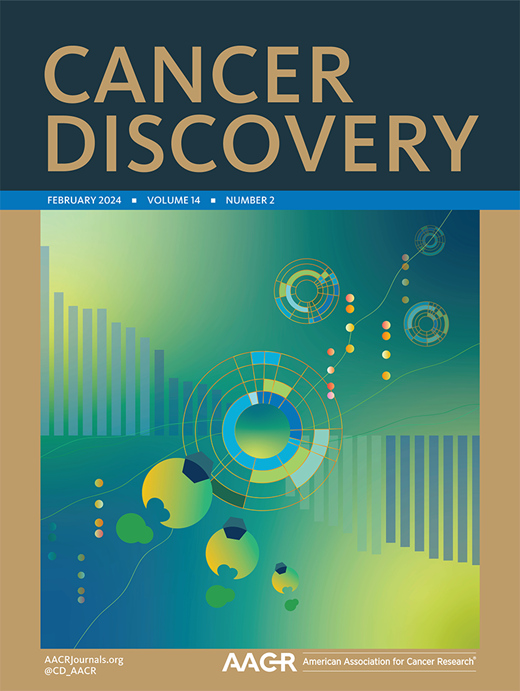RAS(ON)多选择性抑制剂联合治疗通过PDAC中衰老相关的肿瘤免疫平衡触发长期肿瘤控制
IF 33.3
1区 医学
Q1 ONCOLOGY
引用次数: 0
摘要
肿瘤RAS的药理抑制是针对胰腺导管腺癌(PDAC)的一种有吸引力的策略,PDAC是一种几乎无处不在的RAS驱动疾病。然而,靶向单一疗法抑制活性RAS的初始反应可能会导致复发,这可能是由耐药肿瘤细胞的持续存在所驱动的。为了针对这些“持久性”细胞,我们研究了在PDAC小鼠模型中提高其免疫可见性的策略。我们发现RAS(ON)多选择性抑制剂与CDK4/6抑制剂palbociclib结合可驱动持久性细胞进入类似衰老的状态,这与肿瘤控制的改善和肿瘤微环境的大量重塑相吻合。将RAS(ON)和CDK4/6抑制与CD40激动剂结合可导致持久的衰退和CD4 T细胞依赖性肿瘤免疫平衡。我们的研究揭示了一种组合方法,可以在临床前模型中绕过对RAS(ON)抑制剂单一治疗的耐药性,并证明了一种机制,通过这种机制,治疗诱导的衰老可以通过免疫系统加强,从而持久地控制肿瘤。本文章由计算机程序翻译,如有差异,请以英文原文为准。
A RAS(ON) multi-selective inhibitor combination therapy triggers long-term tumor control through senescence-associated tumor-immune equilibrium in PDAC
Pharmacological inhibition of oncogenic RAS represents an attractive strategy to target pancreatic ductal adenocarcinoma (PDAC), an almost ubiquitously RAS-driven disease. However, initial responses to targeted monotherapy inhibition of active RAS can be followed by relapses, potentially driven by the persistence of drug-tolerant tumor cells. To target these ‘persister’ cells, we investigated strategies to increase their immune visibility in mouse models of PDAC. We show that combining a RAS(ON) multi-selective inhibitor with the CDK4/6 inhibitor palbociclib drives persister cells into a senescent-like state, which coincides with improved tumor control and substantial remodeling of the tumor microenvironment. Combining RAS(ON) and CDK4/6 inhibition with a CD40 agonist results in durable regressions and CD4 T cell-dependent tumor-immune equilibrium. Our studies reveal a combinatorial approach that circumvents resistance to RAS(ON) inhibitor monotherapy in preclinical models and demonstrate a mechanism by which therapy-induced senescence can be reinforced by the immune system, resulting in durable tumor control.
求助全文
通过发布文献求助,成功后即可免费获取论文全文。
去求助
来源期刊

Cancer discovery
ONCOLOGY-
CiteScore
22.90
自引率
1.40%
发文量
838
审稿时长
6-12 weeks
期刊介绍:
Cancer Discovery publishes high-impact, peer-reviewed articles detailing significant advances in both research and clinical trials. Serving as a premier cancer information resource, the journal also features Review Articles, Perspectives, Commentaries, News stories, and Research Watch summaries to keep readers abreast of the latest findings in the field. Covering a wide range of topics, from laboratory research to clinical trials and epidemiologic studies, Cancer Discovery spans the entire spectrum of cancer research and medicine.
 求助内容:
求助内容: 应助结果提醒方式:
应助结果提醒方式:


